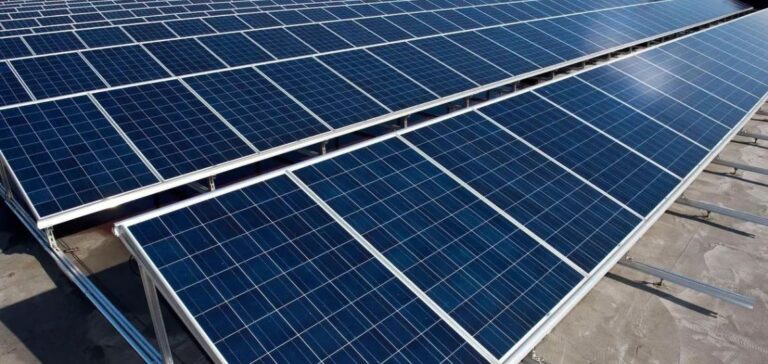Renewable energy initiatives in South Korea take a new turn with the signing of a Memorandum of Understanding (MOU) between Peak Energy, Shinsung E&G and YSP Co., Ltd. The agreement provides for the joint development of a 50 MW solar portfolio, aimed at maximizing revenue for existing building owners while supplying green energy to companies committed to the RE 100 program, including BayWare r.e.
Background and objectives
Recent measures by the South Korean government are encouraging the deployment ofsolar energy projects on small plots of available land and roofs. These initiatives are aimed at reducing energy costs and improving energy security. This strategic partnership fits in perfectly with this dynamic, catalyzing the rooftop solar industry in South Korea. Peak Energy, a major player in Asia’s renewable energy sector, will contribute its expertise in project management, financing and sourcing corporate customers for the energy produced. For their part, Shinsung E&G and YSP will be responsible for finding suitable roofs and managing construction activities. This synergy will combine the strengths of each partner for maximum impact.
Commitments and prospects
Gavin Adda, CEO of Peak Energy, said: “Peak Energy is committed to Korea, where we currently own and operate one of the country’s largest projects. This partnership with Shinsung and YSP is crucial to boosting the rooftop solar industry and helping the government achieve its goals. We bring global best practices through long-term strategic partnerships.” For Su-ok Choi, Vice President of Shinsung’s Renewable Energy Division, the agreement will revitalize the domestic solar energy market and create a positive synergy between the three companies. He added that Shinsung will continue to be fully committed to achieving the government’s objectives.
Economic and environmental impact
The importance of this project also lies in its economic potential. By developing a 50 MW capacity, it will not only help reduce energy costs, but also create new economic opportunities for building owners and local businesses. This project illustrates the ability of public-private partnerships to catalyze sustainable development. In addition, this project meets the growing demand from companies for renewable energy solutions in their operations. Peak Energy’s integrated approach, including business models such as PPAs (Power Purchase Agreements) and energy storage applications, positions the company as a key partner for decarbonization in Asia-Pacific. This agreement between Peak Energy, Shinsung E&G and YSP marks a significant milestone in South Korea’s energy landscape. By joining forces, these companies demonstrate how international cooperation and innovation can help achieve ambitious energy goals while generating economic benefits. The 50 MW project will serve as a model for similar initiatives in the future, contributing to a more stable energy future.






















